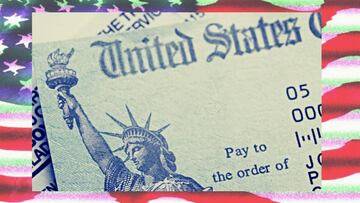Stimulus check: why could I receive it later than others?
After the US Congress adjourned for recess without striking a deal, It could be at least another month at least until Americans receive a second $1,200 stimulus payment.

Congress adjourned for the August recess on Monday 10th and now will not return until after Labor Day on 7 September. It means that with no deal on the table for a new Coronavirus relief package, Americans face over at least a month’s wait for a second $1,200 stimulus check.
The earliest that a deal could be struck will be after Congress returns from vacation on 8 September but even then, it's unlikely that anything will happen immediately. The House of Representatives is not due to reconvene for voting until 14 September although members will remain on stand-by to return to Washington at 24-hours’ notice in the remote scenario that a deal on new stimulus legislation is struck. For any new bill to be passed, members are required to cast their vote in person and so would have to be recalled from vacation. Looking ahead to a potential agreement and subsequent payment, the earliest beneficiaries would see money arriving in accounts would be 23 September.
Stimulus checks: $1,200 payments could still come in 2020, experts say the economy could stall if they don’t come by end of September https://t.co/BVfspsFWa6
— PennLive.com (@PennLive) August 22, 2020
Related: Second stimulus check: who's to blame for lack of payments?
Payment process
With a number of factors meaning that Americans had to wait longer than necessary for their payments - wrong addresses or bank accounts being common reasons - one way in which the government could help speed things up this time around would be to change the wording in the law.

Currently, and stated in the Expedited Funds Availability Act of 1987, funds for checks issued by the Treasury Department must be made available for the recipient to withdraw ‘not later than the business day after the business day’ from when the funds are deposited. That may not seem like a lot of time to wait, effectively just a couple of days, but add in weekends and holidays and it can hurt for those most in need.
By changing this text to ‘immediately’ it would reduce the time the check takes to clear and potentially have a hugely beneficial impact for millions of households across the country. The Federal Reserve can make this alteration while the idea to develop a national real-time payment system was already targeted through the Payment Modernization Act of 2019. There is - or at least there was at the end of last year - opposition to this idea, with some people claiming that it could impact on banking competition. The current pandemic could force a rethink.
Related stories
Although some other suggestions have been made to make payments faster for all, the best thing to do is to prepare yourself for it in whatever way you can. If you can, check the Get My Payment tool from the Inland Revenue Service. This will show you information on what you are entitled to and is a way of tracking any payment. As the IRS and the Treasury have already been through the process once, this time round should mean it is a slicker, easier one to manage, and mistakes having been learned from.
Live coverage of the coronavirus crisis
You can stay up to date with the latest US developments in the coronavirus crisis, including all the breaking relief package news, by following our dedicated live blog.

